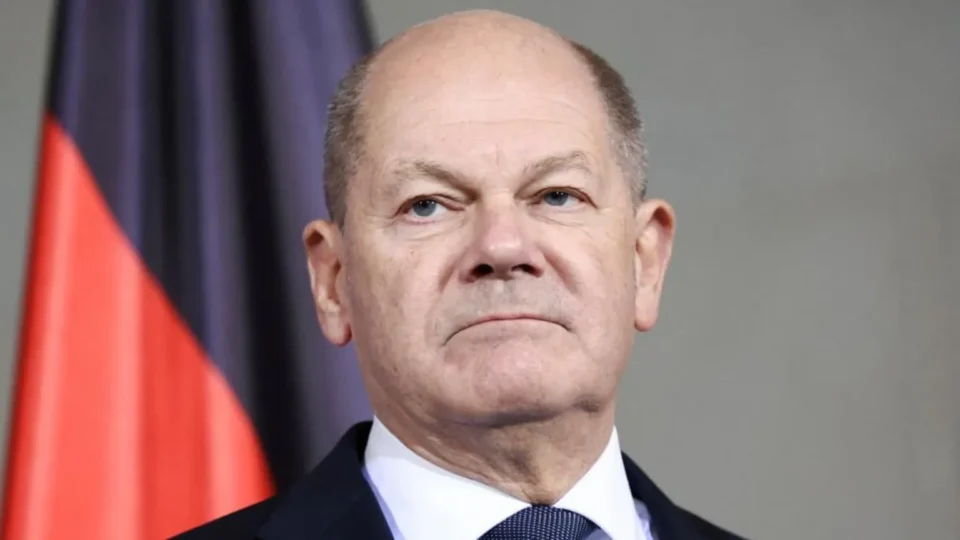German Chancellor Olaf Scholz has lost a vote of confidence in parliament, clearing the way for early elections on February 23.
Scholz initiated the vote on Monday, expecting to lose, but believed that triggering an early election was his best opportunity to rejuvenate his party’s political standing.
This follows the collapse of Scholz’s three-party coalition government about two months ago, leaving him to lead a minority administration.
Ahead of the vote, Scholz stated that the decision would now be up to the voters to “determine the political direction of our country,” setting the stage for what is expected to be a highly competitive election campaign.
Losing the no-confidence vote was the outcome Scholz had anticipated.
As a result, elections can be held in February rather than in the previously scheduled September.
Of the MPs, 207, mostly from his own party, voted in favor of Scholz, while 394 voted against him, and 116 abstained.
Since the collapse of his three-party governing coalition in November, Scholz has depended on support from opposition conservatives to pass any new laws, effectively reducing his government to a lame-duck administration.
Given the sluggish economy and various global challenges, continuing until the September 2025 election date could have been seen as irresponsible by the public.
Scholz’s Social Democratic Party (SDP) is significantly behind in the polls, while the conservative Christian Democratic Union (CDU), led by Friedrich Merz, seems poised for a return to power.
In his remarks before Monday’s vote, Scholz presented the snap election as an opportunity to chart a new course for the country, advocating for “massive” investments, particularly in defense. Merz, on the other hand, warned that more debt would burden younger generations and pledged tax cuts.
High-Risk Move
Scholz’s decision to initiate a vote that he anticipated losing in order to dissolve his government was referred to as a “kamikaze” move by the German tabloid Bild. However, this is typically the only constitutional mechanism available for a German government to dissolve parliament and call for early elections.
This procedure was deliberately designed by the post-war architects of modern Germany to prevent the political instability seen during the Weimar era.
The confidence vote itself is not an extraordinary political crisis; rather, it is a standard constitutional tool used by German chancellors, five of whom have invoked it to resolve political deadlocks – including Gerhard Schröder, who utilized it twice.
Yet, a more significant issue looms within German politics.
On the surface, the coalition’s collapse appeared to be a result of a financial dispute. Scholz’s centre-left SPD and the Green Party aimed to relax Germany’s stringent debt rules to fund support for Ukraine and key infrastructure projects. This proposal was blocked by Scholz’s finance minister, Christian Lindner, leader of the business-oriented Free Democratic Party (FDP), which emphasized reducing national debt.
Lindner’s dismissal led to the collapse of the coalition. After years of ongoing disputes, there was a sense of relief within Berlin’s political circles. However, the deeper cause remains more complex and concerning.
Germany’s political landscape has grown increasingly fragmented, with more parties now represented in parliament. Furthermore, new political forces have become more radical.
In 2017, the far-right Alternative for Germany (AfD) entered the Bundestag for the first time, securing 12.6% of the vote. While their share dropped to 10.4% in 2021, recent polls show their support has surged to nearly 20%.
Here’s a concise, reworded summary of the text to avoid any copyright issues:
The AfD is unlikely to join the government, as no party will form a coalition with them. However, their growing support is dividing the vote between the two main centrist parties that traditionally produce German chancellors. As the AfD’s share increases, it becomes harder for mainstream parties to form stable coalitions. This fragmentation was a key issue in the collapse of Scholz’s coalition, which saw left-wing parties clashing with small-government liberals.
The problem is expected to worsen after the February election. If the AfD secures 20% of the vote, it will further complicate coalition-building. A new far-left party, the Sahra Wagenknecht Alliance BSW, could also enter parliament.
While conservatives are leading in polls, their coalition options are limited. They reject the far-right and radical left, and may not even work with the Greens. This could make a partnership with Scholz’s SDP the only viable option, despite his declining popularity.
Overall, Germany’s era of smooth, consensual coalitions may be over, with the next government facing greater instability.



